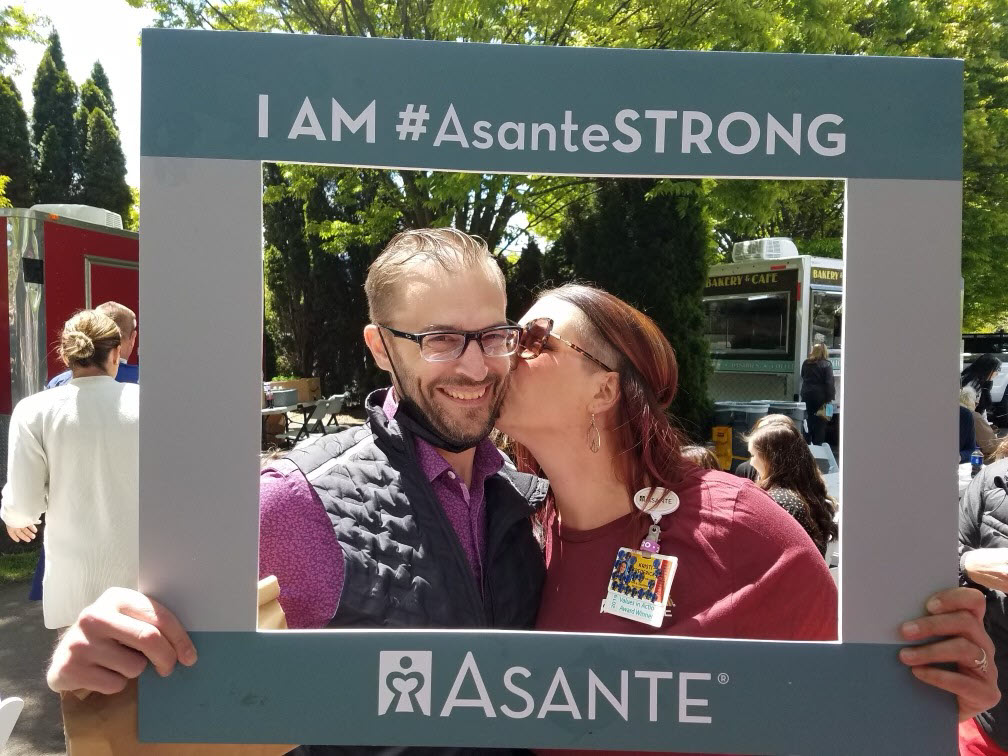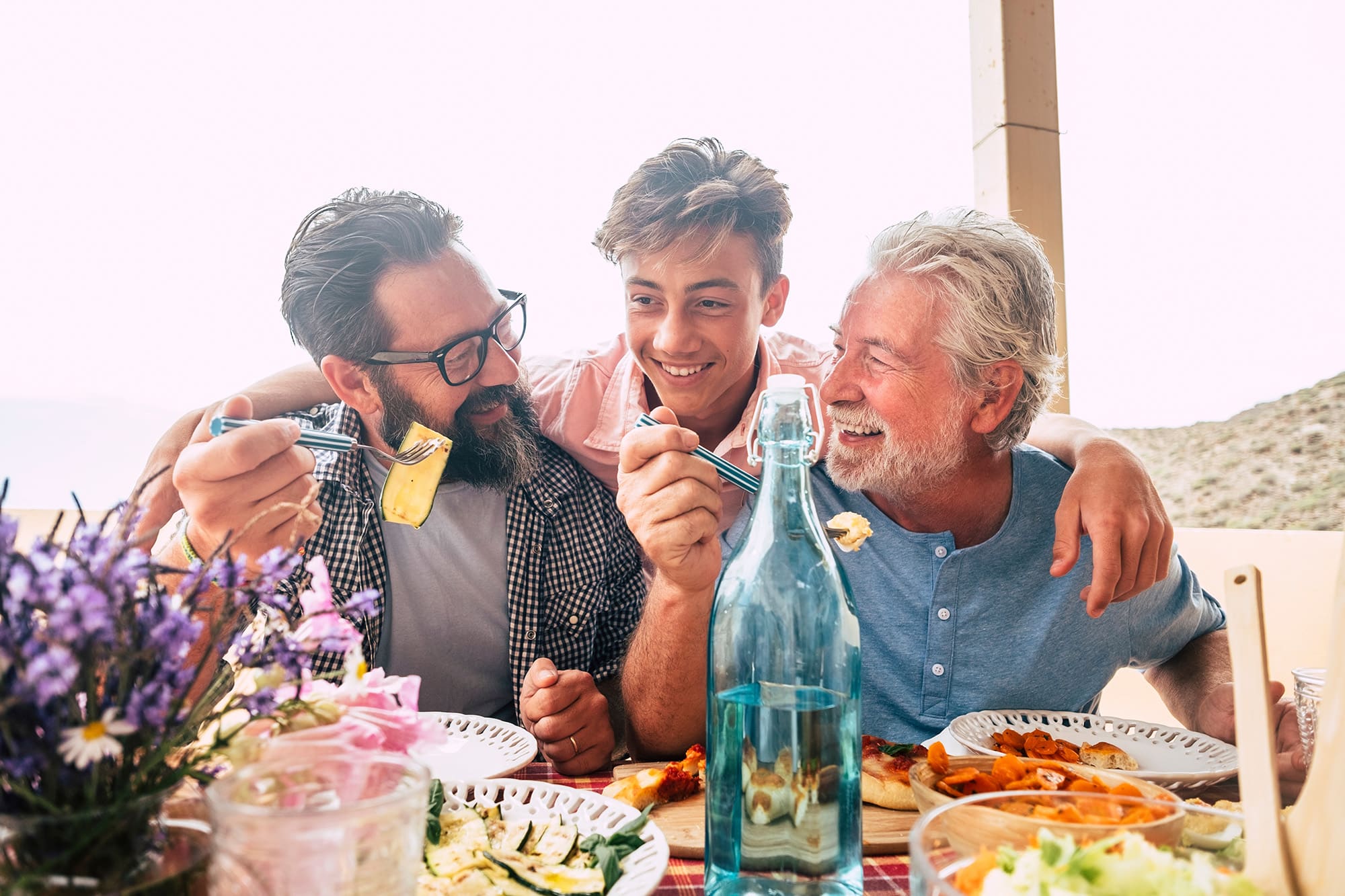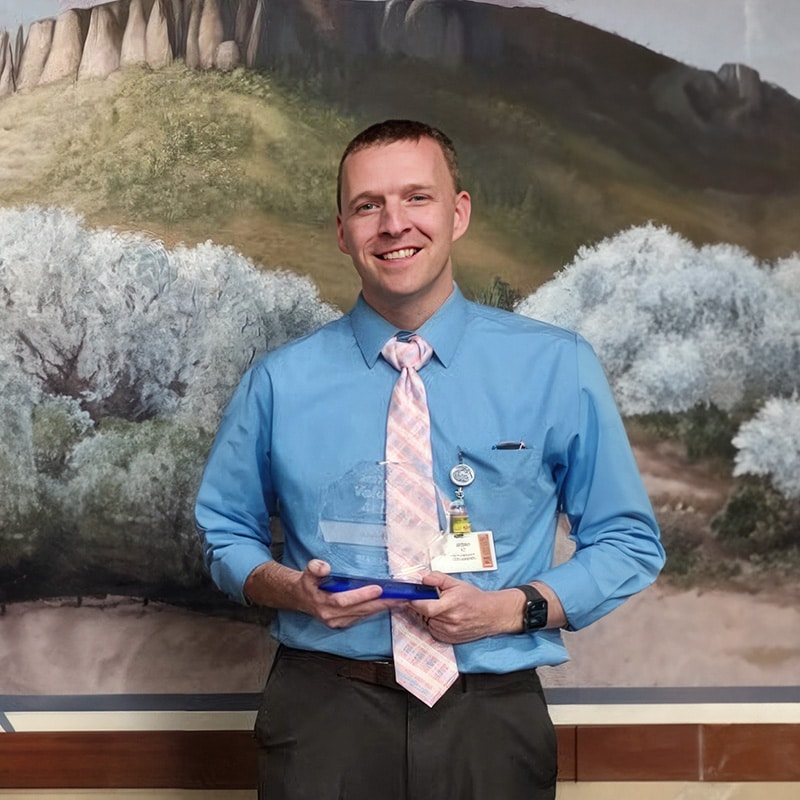Summary
Dr. Kyle Rutledge, a psychiatrist at Asante, discusses the underemphasized role of interpersonal relationships in maintaining mental health.
Blue skies, fresh scents, warm weather and more daylight are natural mood-boosters.
These markers of May — combined with exercise, nutritious foods and other wholesome habits — elevate many Americans’ mental health. Springtime in full swing, however, renews public awareness of psychological fitness and wellbeing.
May is Mental Health Month, officially observed since 1949, with organizations like Mental Health America promoting healthy home environments, healthy communities and time spent outdoors and in nature. One realm that’s often overlooked, said an Asante psychiatrist, is interpersonal relationships.
“You kind of want a balance of different types of relationships,” said Dr. Kyle Rutledge of Asante Behavioral Health, an outpatient clinic in Medford.
Treating a lot of children and teens since he began working with Asante last fall, Rutledge said his patients confirm the importance of healthy relationships at any age and within any demographic. Stress on society at large, he said, has had ripple effects through all levels of the U.S. population.
“Everyone is still bouncing back a little bit from the pandemic,” he said. “I keep hearing it over and over again.”
Younger patients, Rutledge said, may have overly relied on technology during critical phases in their mental development. Older patients, he said, may have struggled to stay connected during COVID and now are challenged to reconnect with friends and family in meaningful ways. The psychological fallout, he added, “seems like it affected everybody.”
“I would say this is kind of uncharted territory.”
Anxious about reintegrating, certain groups of people who became “too comfortable” with technology are at risk of being left behind, said Rutledge. While the same group can cast a “wide net” with social media, they paradoxically can become victims of endlessly comparing themselves to other users and the online bullying and toxic discourse that all too often arises from users’ anonymity.
At first glance less threatening than social media — but more insidious and discussed far less often — are smartphones’ constant presence and powerful influence. Few people, Rutledge said, want to examine the myriad, recurring ways that smartphones distract from rewarding relationships.
“Parents will complain about kids being on their phones all the time,” he said, adding that parents, themselves, model the behavior.
Anyone experiencing dissatisfaction with interpersonal relationships — happening in real time and space — could consider the time and energy they spend on social media, said Rutledge, or even how smartphone alerts interrupt face-to-face conversations and interactions.
Households can achieve more harmony when times are designated for using phones and other forms of technology, said Rutledge. As children age, specifying times to set aside phones may be more realistic. Phone “fasting,” he said, can include logging off devices for several days, removing apps from phones and even deleting social media accounts entirely.
“Sometimes the whole family does it together,” he said. “It’s way easier said than done.”
It’s worth bearing in mind that younger people — seemingly so immersed in social media — are inherently more comfortable with lots of casual relationships, said Rutledge, while older people tend to have tighter-knit friend circles. Acquaintances are very important relationships, he said, as are groups bound by common interests. Forming new relationships — at any of these levels — often involves stepping outside one’s comfort zone, he added.
“It starts with your sense of self.”
And staying true to oneself is the best barometer for knowing if a relationship is beneficial, said Rutledge. Deviating from one’s own values amid interpersonal interactions or feeling deflated, depleted or generally diminished are major warning signs, he said, explaining that psychiatrists see a correlation with toxic relationships and patients lacking a strong sense of self.
“The two people in a relationship actually inspire each other to be better versions of themselves.”
And better health — physical, psychological and socio-emotional — naturally should follow, said Rutledge. Scientific research, he added, overwhelmingly confirms the role of positive relationships on reducing stress and anxiety, lowering blood pressure, boosting the immune system, extending life expectancy and numerous other markers of wellbeing.









